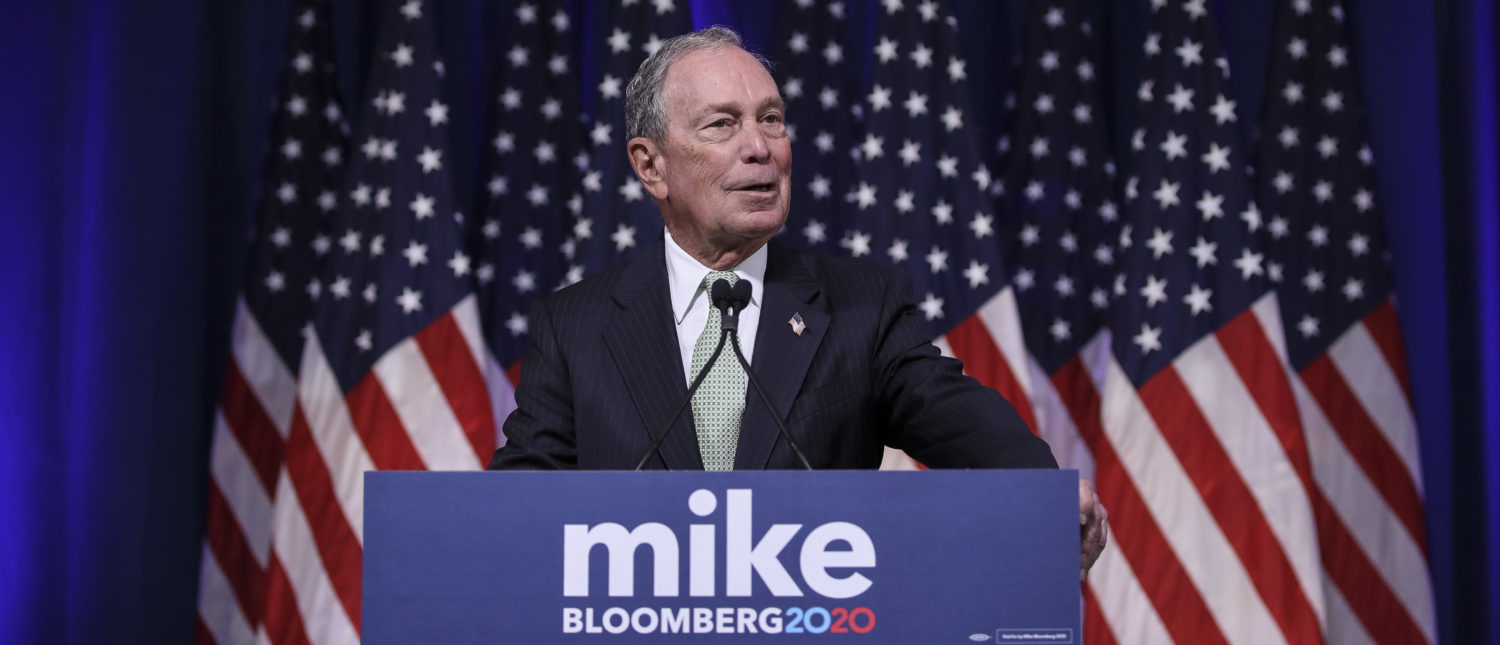- Former Libertarian presidential candidate Shaun McCutcheon sued the Federal Election Commission Friday in an effort to force the agency to declare whether or not Michael Bloomberg’s $18 million contribution to the DNC in March was illegal.
- Bloomberg bypassed the $35,500 individual contribution limit by funneling his donation through his presidential campaign, which was funded exclusively by the billionaire’s own wealth.
- The former Republican mayor was invited to speak in front of the Democratic National Convention in August, where he criticized President Donald Trump’s handling of the economy during the coronavirus pandemic.
A libertarian who unsuccessfully ran for president is suing the Federal Election Commission to force the agency to determine the legality of former New York City Mayor Michael Bloomberg’s donation to the Democratic National Convention, a copy of the complaint shows.
The FEC did not rule on Shaun McCutcheon’s previous attempt to challenge the legality of Bloomberg’s $18 million contribution to the DNC, so the former candidate is suing for protection to donate his own campaign funds to the Libertarian National Committee, according to the Friday complaint.
Individuals can donate a maximum of $35,500 each year to national party committees, according to the FEC. McCutcheon filed an advisory opinion request with the FEC in June asking the agency if he can bypass individual contribution limits by transferring $50,000 that he contributed to his campaign committee directly to the Libertarian Party. (RELATED: EXCLUSIVE: Libertarian Candidate Discovers A Novel Way To Test Whether Bloomberg’s Massive DNC Donation Is Legal)
“Federal election law allows an individual to only contribute up to $35,500 per year to a political party – and that same limit applies to Mike Bloomberg’s transferred money– unless and until the FEC or courts approve Shaun McCutcheon’s request to do the same,” Dan Backer, attorney for McCutcheon, said in a press statement announcing the lawsuit.

NORFOLK, VA – NOVEMBER 25: Newly announced Democratic presidential candidate, former New York Mayor Michael Bloomberg (Photo by Drew Angerer/Getty Images)
Bloomberg “already has a SuperPAC – but unless the FEC or courts rule otherwise this isn’t one of them. It shouldn’t be this easy to just buy off a political party, unless you’re rich as Bloomberg, apparently,” Backer added. He filed a complaint through his group Great America PAC in March alleging the contribution is an attempt to circumvent campaign finance laws.
Bloomberg, a former Republican mayor who was invited to the Democratic National Convention in August, pumped roughly $1.07 billion of his own wealth into his presidential campaign, according to FEC records. He spent more than $234 million on TV, radio and digital ads in the Super Tuesday states during his short presidential run, a Fox affiliate reported.
Bloomberg suspended his campaign in March and endorsed former Vice President Joe Biden. He criticized President Donald Trump at the DNC for his handling of the economy during the pandemic.
Bloomberg had previously promised to create an independent expenditure campaign ahead of the election that would have kept his campaign staff employed throughout November 2020 but did not follow through.
“[I]f Bloomberg broke the law, then Shaun should be allowed to do the same thing. If not, then it completely destroys the entire concept of contribution limits, because then anybody could start a campaign, dump all their money in, and transfer it to the parties,” Backer told the DCNF in June.
Bloomberg could set a precedent, according to former FEC Commissioner Brad Smith. “The statute is pretty clear that such transfers are allowed,” Smith told the DCNF in June. “Note that it’s right in the statute — this is not a creation of FEC regulation, but of Congress.”
Political campaigns are not subject to the same contribution limits. Since candidates can pour unlimited resources into their own campaigns, a type of “Bloomberg Billionaire Loophole” is created, according to McCutcheon’s complaint, which allows people to bypass contribution limits and donate limitless funds to national parties like the DNC using a political campaign as a conduit.
“We may see more of it — now that the tactic has been demonstrated, we should expect that others will probably use it,” Smith said, explaining what he believes will happen if FEC does acknowledge the legality of such transfers. The FEC was unable to render an opinion on McCutcheon’s case because the agency lacks a quorum, the agency announced Aug. 17 on its website.
The FEC declined to comment, and neither the DNC nor Bloomberg have responded to the DCNF’s request for comment.
All content created by the Daily Caller News Foundation, an independent and nonpartisan newswire service, is available without charge to any legitimate news publisher that can provide a large audience. All republished articles must include our logo, our reporter’s byline and their DCNF affiliation. For any questions about our guidelines or partnering with us, please contact licensing@dailycallernewsfoundation.org.


